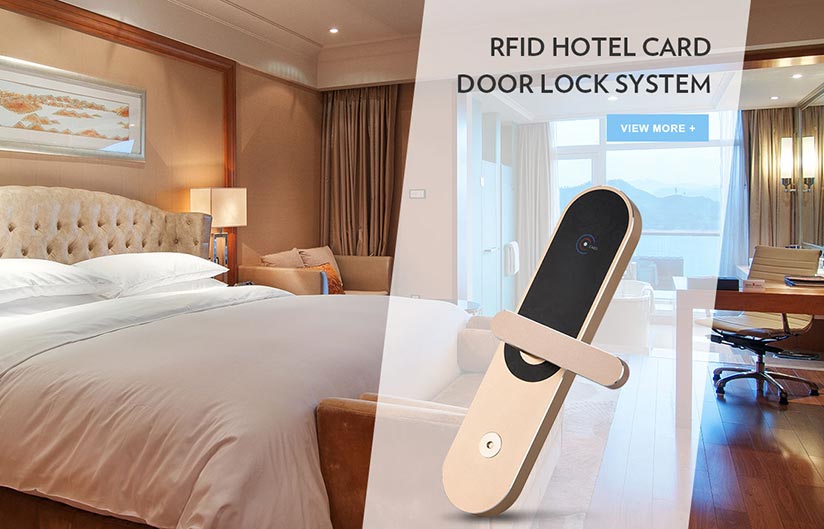May. 19, 2025
As technology continues to evolve, smart locks have become an essential part of modern security systems. Among the most popular types of smart locks are fingerprint locks, which offer a blend of convenience and enhanced security. At YORFAN, a leading smart lock manufacturer, we specialize in providing cutting-edge solutions tailored to various applications. In this article, we’ll delve into the differences between standalone and networked fingerprint locks, helping you decide which one suits your needs best.
What Are Standalone Fingerprint Locks?
Standalone fingerprint locks are self-contained security devices that operate independently without requiring any external network connection. These locks are designed to store and manage access credentials directly within the device. Users typically add or remove fingerprints directly on the lock itself through a simple interface, making it an excellent choice for smaller-scale applications such as homes, small offices, or individual lockers.
Key Features of Standalone Fingerprint Locks
Ease of Installation: Standalone locks are easy to install since they don’t require integration with a network or additional hardware.
Cost-Effective: These locks are generally more affordable compared to networked systems, making them ideal for budget-conscious users.
Offline Operation: Since they don’t rely on an internet connection, standalone locks are immune to network outages or connectivity issues.
Simple Management: Access credentials are managed directly on the lock, eliminating the need for external software or apps.
Standalone locks are often used in applications where simplicity and reliability are paramount. For example, YORFAN’s electronic locker lock is a popular choice for gyms, schools, and personal storage, offering secure access without the need for complex configurations.

What Are Networked Fingerprint Locks?
Networked fingerprint locks, on the other hand, are designed to integrate with a centralized system or network. These locks are connected via Wi-Fi, Bluetooth, or other communication protocols, enabling remote management and monitoring. They are ideal for larger-scale applications where centralized control and real-time updates are crucial.
Key Features of Networked Fingerprint Locks
Remote Management: Administrators can add or revoke access credentials remotely via a mobile app or software platform.
Real-Time Monitoring: Networked locks provide real-time notifications and access logs, enhancing security and oversight.
Scalability: These locks can be integrated into larger systems, making them suitable for hotels, commercial buildings, and enterprises.
Advanced Features: Many networked locks offer additional functionalities such as time-based access control and integration with other smart devices.
For example, YORFAN’s brass hotel lock is a perfect example of a networked lock designed for the hospitality industry. It allows hotel managers to issue digital keys to guests, monitor room access, and enhance the overall guest experience.
Comparing Standalone and Networked Fingerprint Locks
To better understand the differences between these two types of fingerprint locks, let’s compare them across several key aspects:
| Aspect | Standalone Fingerprint Locks | Networked Fingerprint Locks |
|---|
| Installation | Simple and quick | Requires network setup |
| Cost | Lower initial cost | Higher initial cost |
| Management | On-device management | Remote and centralized management |
| Scalability | Limited to individual devices | Highly scalable |
| Applications | Homes, lockers, small offices | Hotels, enterprises, large facilities |
Choosing the Right Lock for Your Needs
The choice between standalone and networked fingerprint locks largely depends on your specific requirements. If you’re looking for a simple, cost-effective solution for a small-scale application, a standalone lock might be the right choice. However, if you need advanced features, scalability, and centralized control, a networked lock is a better fit.
At YORFAN, we offer a wide range of smart lock solutions, including the highly durable brass hotel lock for the hospitality industry and the versatile electronic locker lock for personal storage. Our products are designed to meet the diverse needs of our customers, ensuring security, convenience, and peace of mind.
Conclusion
Both standalone and networked fingerprint locks have their unique advantages and are suited for different applications. By understanding the differences and evaluating your specific needs, you can make an informed decision. Whether you’re securing a single locker or managing access for an entire hotel, YORFAN has the perfect solution for you. Explore our range of smart locks today and experience the future of security.
Tags:apartment and commercial door lock,electronic cam lock,bluetooth locker lock


